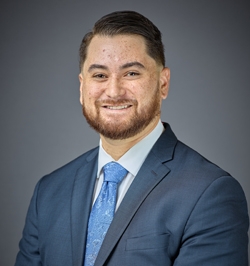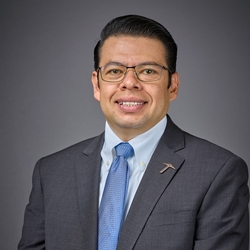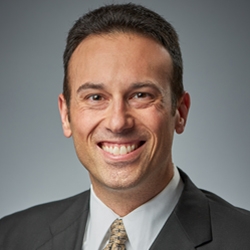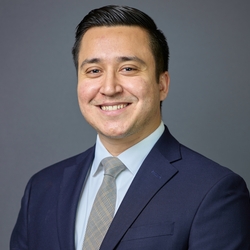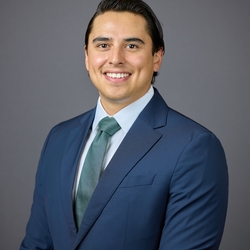El Paso, TX (December 15, 2015) On December 4, 2015, Texas employers scored an important victory when the Texas Supreme Court issued its decision in the Kings Aire, Inc. v. Melendez case. At issue in the case was whether there was legally sufficient evidence to prove that Kings Aire, the employer, had unlawfully terminated Jorge Melendez’s employment because he filed a workers’ compensation claim where Melendez’s termination was required by the company’s leave of absence policy. The Court found that there was no evidence that Melendez’s termination resulted from anything other than Kings Aire’s uniform enforcement of its reasonable leave policy and, accordingly, reversed the jury’s award of damages to Melenez and rendered judgment in favor of Kings Aire.
Kings Aire case is important because it reinforces and upholds well-established case law stating that an employee cannot prove retaliatory discharge for filing a workers’ compensation when the termination of employment was required by the uniform enforcement of a reasonable leave policy. In Continental Coffee Products v. Cazarez (Tex. 1996), the Court held that while an employee could prove retaliatory discharge with circumstantial evidence, if the discharge was required and pursuant to a reasonable leave of absence policy, then the discharge could not have occurred because the employee filed a workers’ comp claim. Circumstantial evidence, in this context, is evidence that would permit a jury to infer that the employer’s real reason for terminating an employee was the filing of the workers’ comp claim and may include: the employer’s expression of a negative attitude toward the employee’s injury; the employer’s failure to adhere to its own company policies; evidence that the employer treated similar employees who had workers’ comp injuries less favorably than employees who did not have such injuries; and evidence that the employer’s stated reason for the termination is false. In a later decision called Haggar Cothing, Co. v. Hernandez (Tex. 2005), the Court held that even if circumstantial evidence of a retaliatory discharge exists, such evidence is “immaterial” if the termination was required by the uniform enforcement of a leave policy. What this means is that if an employer’s leave of absence policy is applied uniformly to all employees without regard to whether an employee filed a workers’ comp claim, then an employee’s termination pursuant to that policy cannot be the basis of a workers’ comp retaliation lawsuit even if there is circumstantial evidence that would otherwise support the claim.
The Kings Aire case presents a set of circumstances common to many employers. Melendez worked for Kings Aire, an HVAC company, as an electrician and sustained a serious work-related injury when a light fixture fell and lacerated his wrist. Melendez was taken to the hospital, and Kings Aire initiated a workers’ comp claim on his behalf. Melendez required surgery and was placed on FMLA leave which provided him with 12 weeks of job-protected leave. Kings Aire’s written policy stated that family medical leave could not exceed 12 weeks (3 months) and an employee who failed to return to work within that timeframe would be terminated. At the conclusion of the 12-week period, Melendez had not yet been cleared to return to work, and Kings Aire notified him that his employment was terminated pursuant to the company’s leave policy with an invitation to re-apply when released. Melendez sued Kings Aire claiming that his employment had been terminated in retaliation for filing a workers’ comp claim.
Kings Aire denied Melendez’s claim. At trial, it presented evidence that four other employees had been terminated for the same reason – failing to return to work upon the expiration of a FMLA leave of absence. The evidence showed that two of the employees had taken leave because of a work-related injury and the other two had taken leave for personal medical reasons unrelated to work. In all four cases, however, the employees were – like Melendez – terminated for not returning to work within 12 weeks. Thus, Kings Aire established that it applied its policy neutrally to similarly-situated employees without regard to the cause of the leave. In other words, Kings Aire treated its employees equally and did not apply its leave policy to discriminate against workers who filed workers’ comp claims. Therefore, applying Cazarez, Melendez could not legally prove that he was terminated in retaliation for filing a workers’ comp claim and his case should have been dismissed as a matter of law. Unfortunately, the trial court refused to dismiss the case and the El Paso Court of Appeals decided to affirm the jury’s verdict in favor of Melendez. Kings Aire’s last option to vindicate its rights was to ask the Texas Supreme Court to hear the case – a long shot given that the Court only hears about 10% of the cases that are petitioned for review. Fortunately, the Court agreed to hear Kings Aire’s case.
In reversing the judgment in favor of Melendez, the Court noted that Kings Aire had consistently applied its leave policy by terminating all employees who did not return to work upon the expiration of their FMLA leave. Consequently, under Cazarez, Melendez could not prove he was terminated in violation of the law. Melendez had argued that his termination was inconsistent with the policy because he was not afforded a 15-day grace period following the leave’s expiration to provide a doctor’s note clearing him to work. Kings Aire explained that the 15-day grace period only applied to employees who returned to work before the 12-week period expired and should not be read as an additional 15-day period on top of the 12 weeks already provided by the policy. Melendez’s argument was accepted by the El Paso Court of Appeals which found that the policy was ambiguous and, therefore, a jury could infer that Kings Aire violated its own policy. The Supreme Court swiftly rejected this argument stating even if the policy was ambiguous, there was no evidence that Kings Aire had ever applied the policy to give other employees an extra 15 days to return when their leave expired. In fact, the Court noted that waiting an extra 15 days before terminating Melendez would have constituted a departure from the policy as every other employee whose leave expired was immediately terminated. Notably, even if Melendez had been given an extra 15 days to return, it would not have helped him since his doctor did not release him to work for another 9 months. Melendez also argued that Kings Aire had improperly placed him on FMLA leave which created a 12-week countdown to end his employment. The Court properly rejected this argument as well because an employer has a legal obligation to designate an employee’s leave as FMLA-qualifying once it has sufficient information to make that determination and the failure to do so exposes employers to risk of violating the FMLA. Kings Aire had sufficient information to determine that Melendez had a serious health condition and appropriately designated his leave as FMLA leave in accordance with federal law. Accordingly, the Court held that the evidence was legally insufficient to support the jury’s verdict.
The Kings Aire case further clarifies and strengthens an employer’s right to take action in accordance with its established leave policy so long as the policy is uniformly enforced. It must be noted, however, that while automatic termination of an employee under a company’s leave policy may not violate the law prohibiting workers’ comp retaliation, it could violate the Americans with Disabilities Act (“ADA”). The EEOC, the federal agency that investigates alleged violations of the ADA, has taken the position that extension of a leave of absence for a reasonable and definite time period could constitute a reasonable accommodation. Therefore, an employer who fails to provide that accommodation, where appropriate, and instead terminates the employee, without regard to whether a short extension could accommodate the employee, may violate the law. Accordingly, employers must use caution in enforcing their leave policies.
Kemp Smith LLP proudly represented Kings Aire, Inc. at all stages of the litigation. If you have any questions about enforcing your company’s leave policy or any other employment-related matter, please contact our Labor and Employment Department.
About Kemp Smith
For nearly 150 years, Kemp Smith has provided high quality legal services throughout the Southwest, with offices in El Paso, Austin and Las Cruces. The firm prides itself on the expertise of its attorneys in numerous specialty areas, including trial and appellate litigation; insurance defense; medical malpractice; bankruptcy; labor and employment; tax; corporate and business transactions; environmental, public and administrative law; healthcare administration; trusts and estates; governmental affairs; real estate; and intellectual property. Please visit www.kempsmith.com or call 915.533-4424 for more information.








